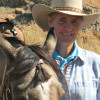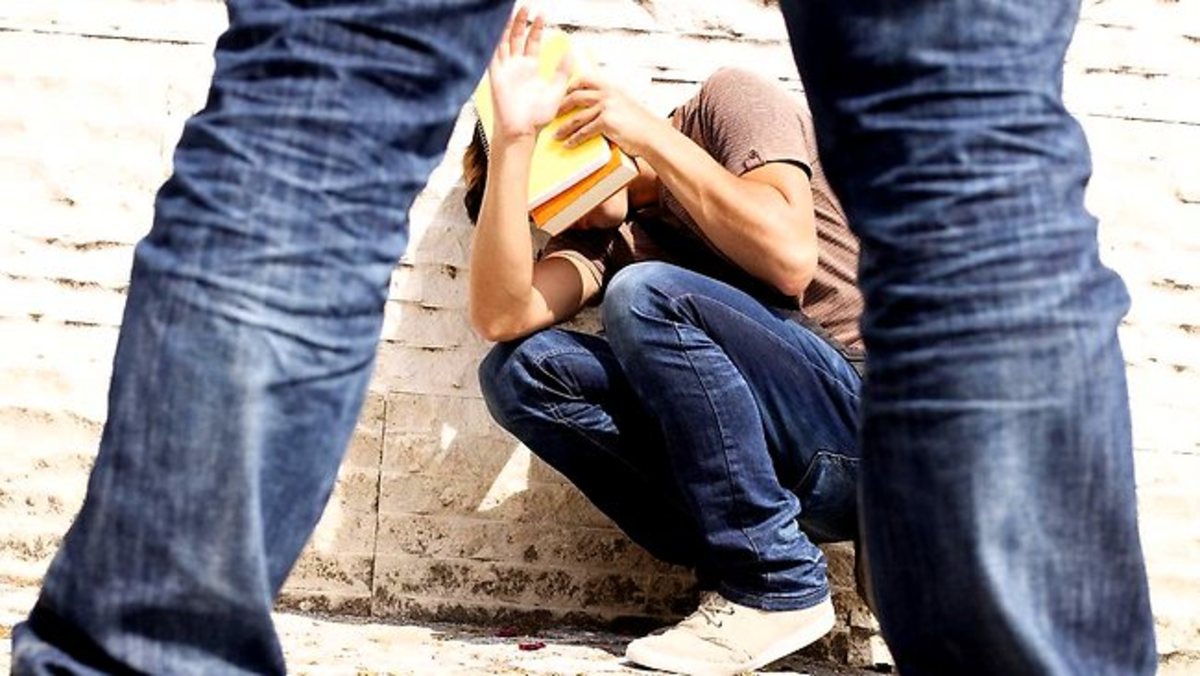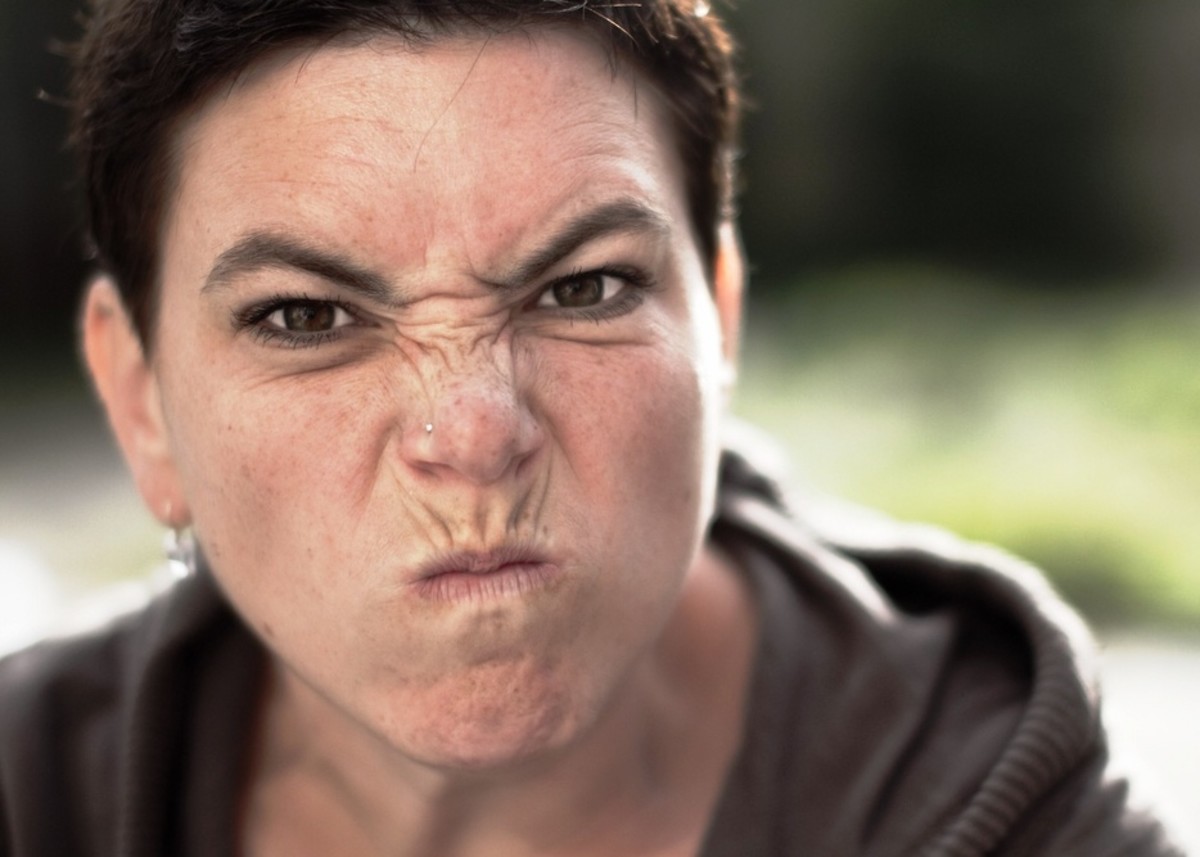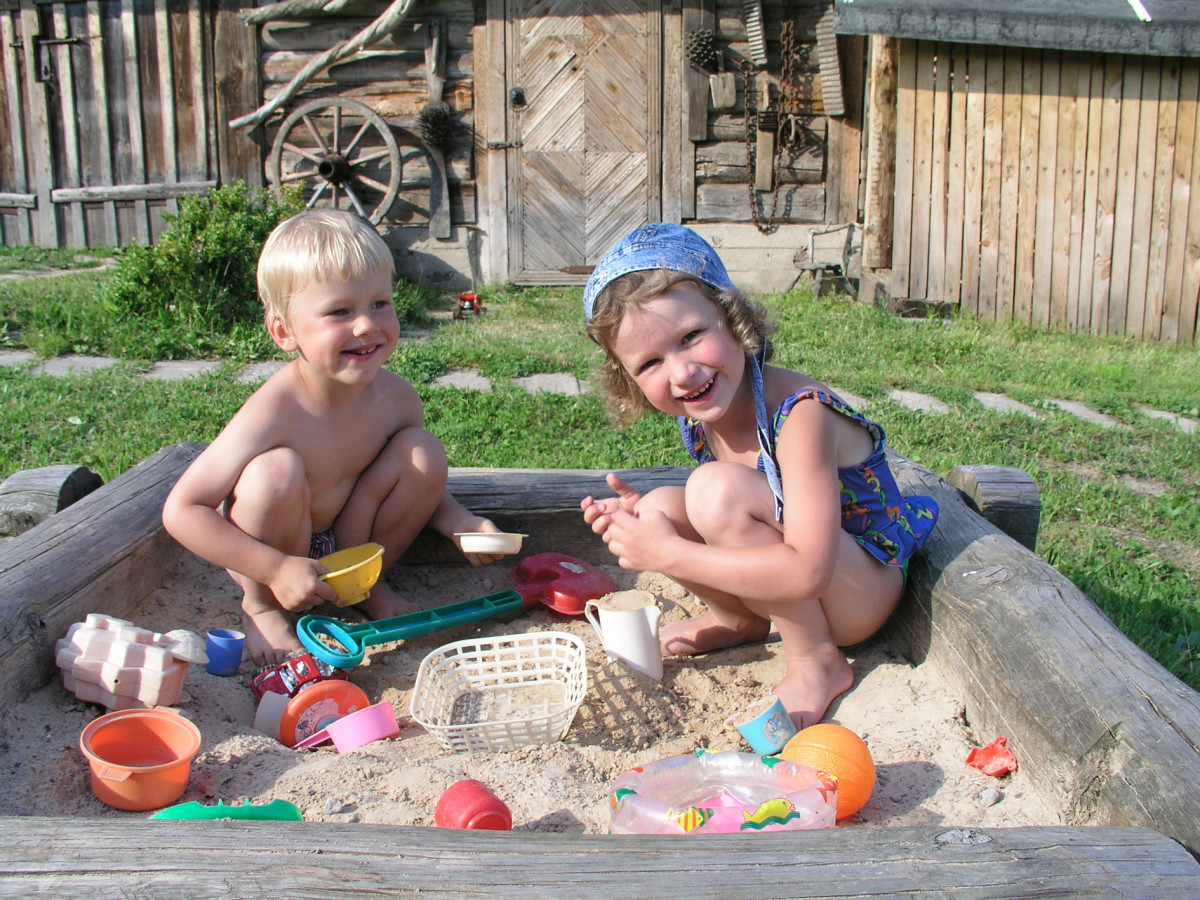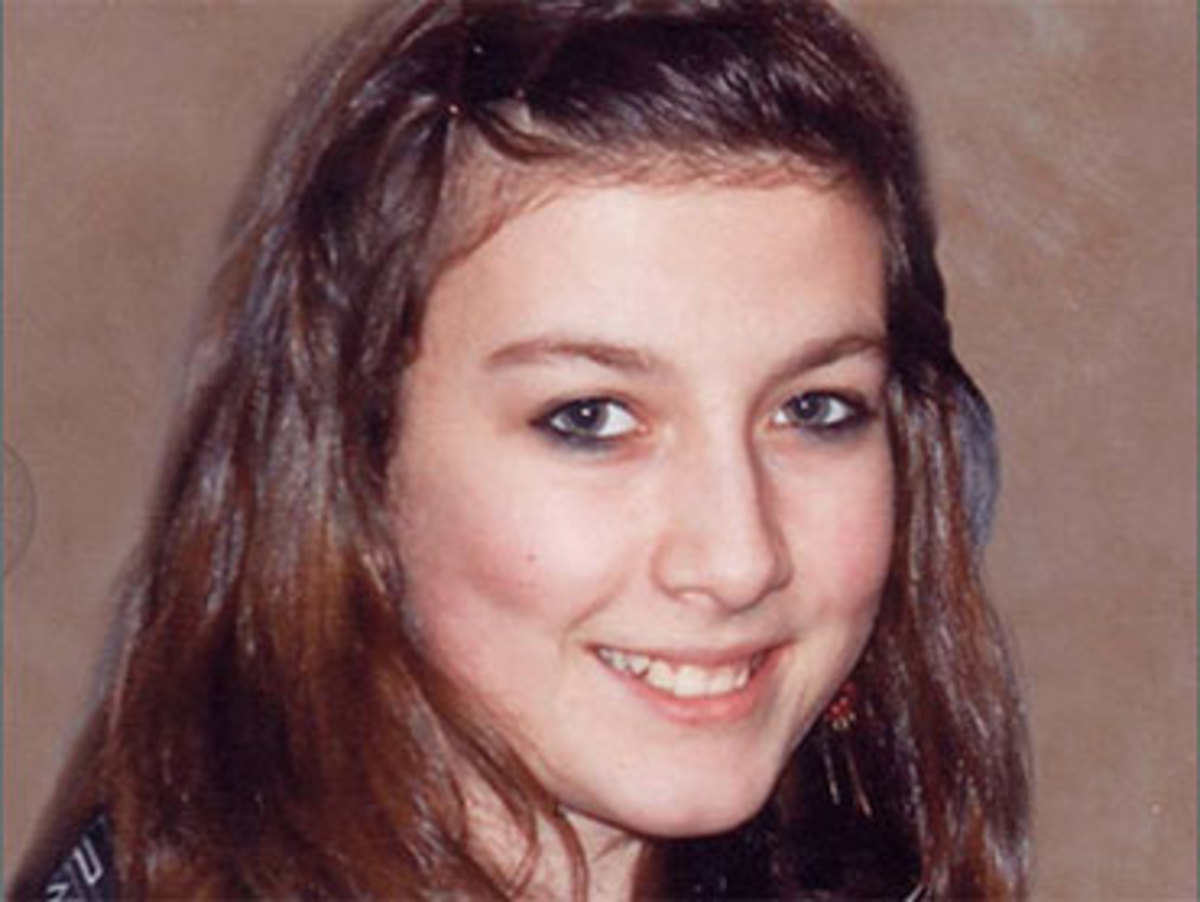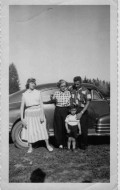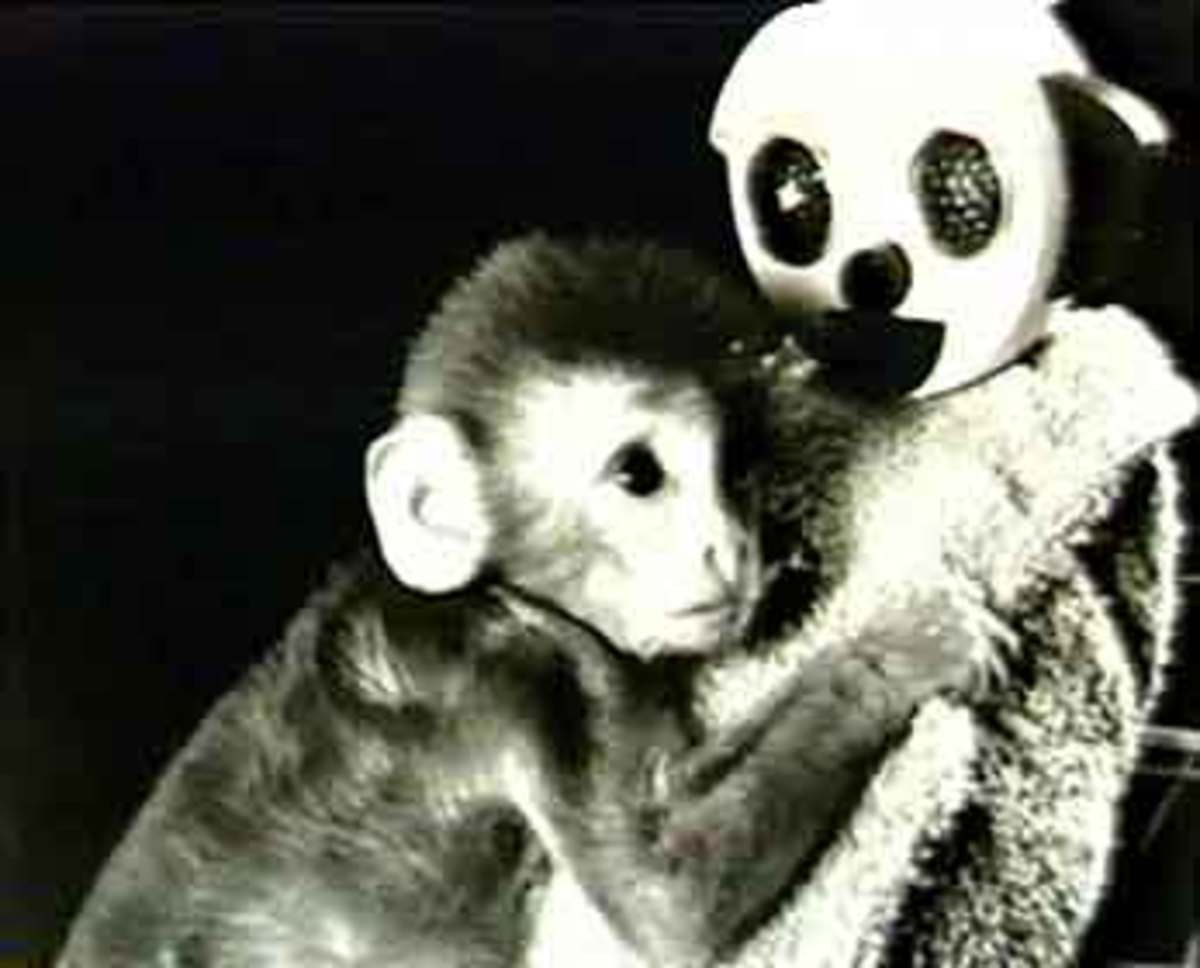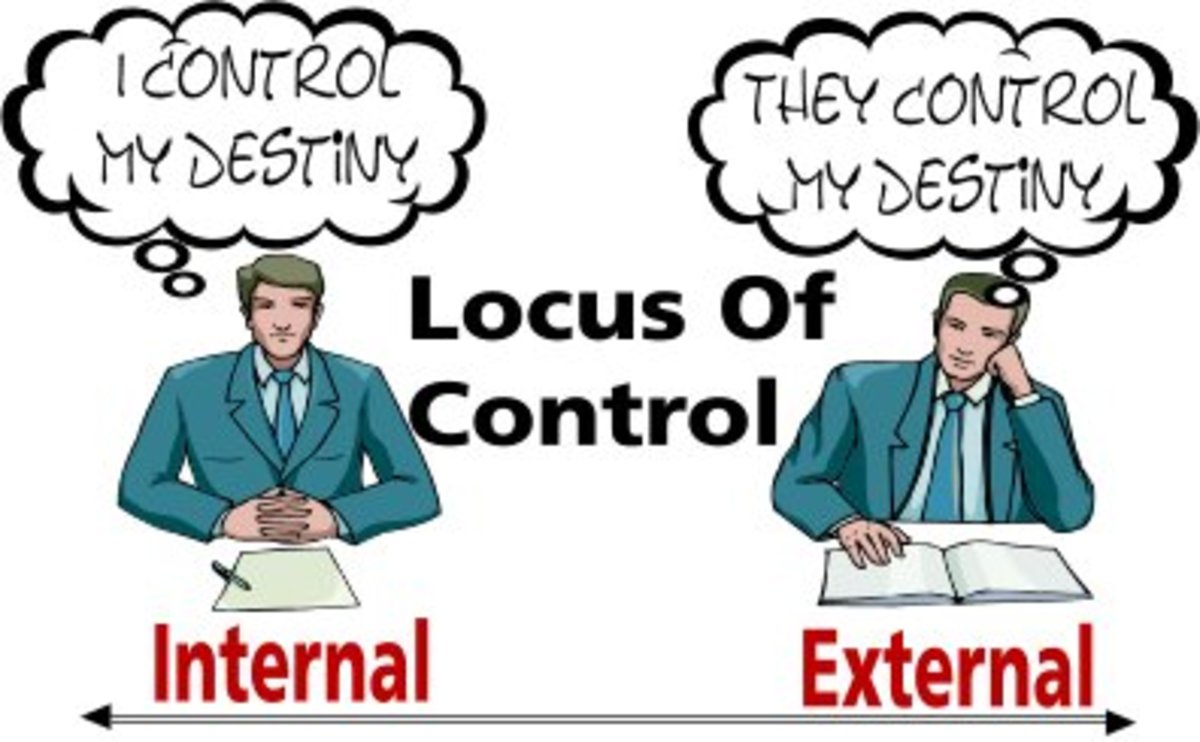Lessons Learned From Bullies: A Memoir
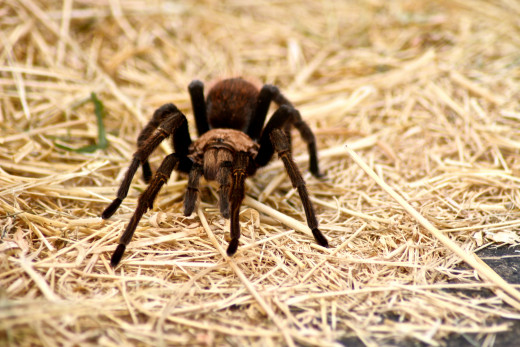
My bullies were as diverse as they were many. From my brother's relentless bullying inside the home to the nerve-wracking walk three-quarters of a mile home after school, they extended from early childhood to the early days of my career. They haunted the playground, the classroom, the family room, the briefing room. As a rule, they were bigger, older, senior in some way. As a rule, they taught me more than a life full of butterflies and bliss would ever have taught.
If you expect to read an anti-bullying essay, read on. If you wish to read a "forget bullying, let's raise more resilient children," read on. Looking for (or dreading) yet one more personal reminiscence about childhood's darker, more anxious side? I'm all that. That's what we are, bullies and bullied alike: complex creatures who are often in conflict, particularly with ourselves.
A White Plastic Tree.
Kiddie Korral. I was two, but the image of that scary place -- scary like a malevolent clown -- remains in the archives of my brain as if I'd been there yesterday instead of nearly 50 years ago. It boasted the letters of its name in brightly-colored enamel paint on large wooden squares, intended to resemble tumbling blocks, mounted to the low chain-link fence of the play yard. My mother still recalls how I called it "the crying school." She once asked me why I called it that and I apparently replied, "Because that's what we do there, we cry and cry all day." I remember digging my fingers into themselves as I grasped the chain link wire, crying as my mother drove away in her little brown Corvair.
The women who tended us were heavy, elderly, ever-annoyed disinterested matriarchs of discipline. They fed us frosted animal cookies at snack time, two or three pink tigers or ponies carefully measured onto a paper napkin, and their only enthusiasm was saved for the children's nap time. Then, as now, I was an inveterate insomniac. I couldn't sleep. The ladies of Kiddie Korral were visibly and memorably irritated when my mother asked if I could just sit and color instead.
But they were not the bullies, those desiccated old cows. The first bully I encountered was a little boy named Rocky -- a boy much bigger than I was. He used to hit me with a white plastic tree, a stylized cone-shape object, the kind with a round base suitable for inserting into one of those ubiquitous play stations with slots and holes.
Values and priorities were different then: being a tattle-tale was worse than being a bully, and every adult reinforced it. I learned on that tiny square playground of Kiddie Korral that adults didn't want to hear about playground squabbles. I learned then that I had to look out for myself.
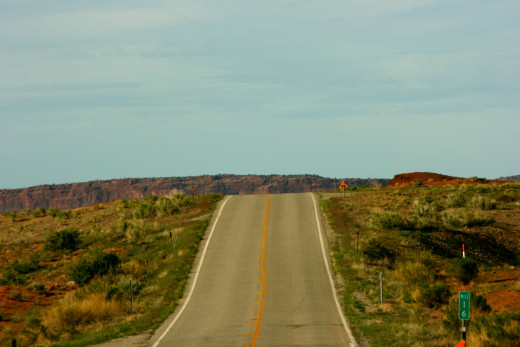
The Long, Long Walk.
Three-quarters of a mile. The walk to school was three-quarters of a mile of safe, suburban streets back in a time when it was rare that a child might be snatched off a sidewalk -- but then again, we didn't have sidewalks. We had that lovely, naturalized neighborhood where the cactus and native soil extended right to the edge of the asphalt. We had wonderful alleys to explore, narrow corridors between adjacent fences to use as shortcuts, patches of open, vacant desert to build forts and hideouts in. It had the makings of a perfect childhood.
But that three-quarters of a mile was treacherous when you're young, alone and walking to school at the same time all the "Big Kids" were headed in the same direction. My neighbor, Mark, was the reigning Bully of the Long Walk. As soon as we were out of sight of our own houses, Mark would either wait for me or catch up with me -- it didn't matter if I hurried to be early or deliberately lingered. I don't remember much of what was said or done; likely, he knocked my books out of my hands, and I vaguely recall a few shake-downs. I do, though, clearly remember my fear when he'd accost me, and how surprised his parents were when my mother knocked on their door and demanded that the terrorism stop.
My mother taught me a valuable trick when Mark was making my life miserable. "When they approach you, turn around and wave like you see your mother," she said. "Make them think there's an adult watching. And if that doesn't work, kick them where it counts!" Mom was pragmatic.
Mark turned out to be a pretty decent guy, truth be told. From Mark, I learned that not all bullies are actually intending to hurt you. Sometimes they're just ignorant; sometimes they just want attention; sometimes, as my dad would have put it, they just need their hides tanned. From my mother, I learned that psychological techniques are critical in self-defense; I taught similar techniques later when I conducted self-defense training to adult women. I also learned that if all else fails, kick 'em where it counts.
Like Chickens Tasting Blood.
Second grade. Our much-loved teacher was sick and we had that most-maligned of creatures -- a substitute teacher. Her name was written in bold, neat, capital letters on the chalkboard (yes, it was back then -- whiteboards hadn't been invented yet.) She was condescending, distinctly meek in personality, and overweight.
That was all it took. The class, normally well-behaved and of normal middle-to-upper class students -- mostly, like myself, the children of engineers -- went into a feeding frenzy. Somehow the class attacked that undeserving woman. They were like my pet chickens: they sensed a weaker individual, they began pecking at her, and once they tasted blood, they became shockingly aggressive. Suddenly almost the entire class -- perhaps including myself, I don't remember if I was among them or not -- was chanting, "Fatty, fatty, two-by-four / couldn't fit through the bathroom door" at the woman.
Within minutes, the only adult in the room -- who'd done nothing wrong but had made the decision to be a substitute teacher, one of the most thankless jobs in the world -- was in tears. Speaking through her sobs, she confessed, "I know I'm fat! I know I'm fat!" and begged us -- yes, begged us -- to quit torturing her. We did. The class calmed down and the teacher fled the room.
Although her tenure with us was short, lasting decidedly less than one fifty-minute class period, I still learned from that teacher. I learned that cruelty and abuse doesn't just target the younger, weaker, smaller individual. I learned that it goes upward on the social hierarchy as well as downward; that it transcends gender, age, and position of authority.
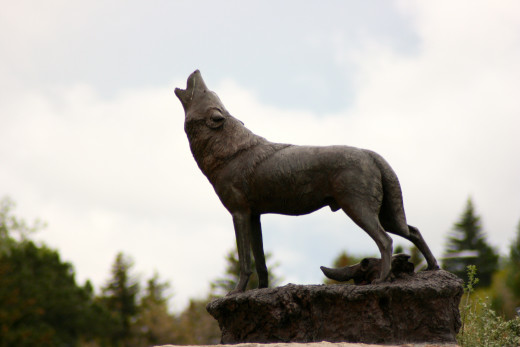
Pack Mentality.
Sixth grade. The long, near-windowless collection of narrow slump block buildings that housed our grade school classrooms were the perfect layout for ganging up on some lone victim and mercilessly tormenting him for the differences, real or perceived, he projected. Back then -- the early seventies -- effeminate boys were not always tortured, but they were most certainly teased. Sometimes the teasing was intended to be good natured and even affectionate. I'm sure it wasn't taken that way, but it wasn't always mean-spirited; it was more ignorant than ill-intended. Sometimes, though, it was brutal -- so brutal I still recall how sick I felt observing it.
David was a kid who was clearly different. He was a pale, tall, lanky boy with dark brown hair in a bowl-type haircut. It was the seventies. Hair mattered. That haircut, with its full bangs that were neatly cut straight across his forehead and above his thick eyebrows, marked him as distinctly uncool. David was distinctly girlish. What targeted him for so much abuse, though, was his continually sour expression. Never did I see David smile. He scowled with sheer hatred.
As an adult, I can look back and understand his hatred. Even as a child, I had a suspicion that David's home life was no better than his school experience. He had nothing, most likely, to smile about. But that scowl, more than anything, caused him grief with his classmates. They were accepting of Tommy, the flamboyantly effeminate boy a year older -- Tommy was surrounded by friends, and although they teased him, they befriended him nonetheless. Later, I was but one among the majority of my high school class who adored Robby, who was openly gay during a time when "open" and "gay" weren't yet a thing. Robby was the most popular kid in the drama crowd. David, though, was tormented. He held his books tightly in front of his chest -- perhaps to fend off the then-popular attack where kids would slap both hands down on the front of one's books and knock them all to the ground. The kids would surround him like a pack of snapping dogs, calling him names, verbally shredding him.
David's experience troubled me more than any of my own bouts with being bullied did. I felt dirty and nauseous seeing the others harass him, his back stiff and ruler-straight against the beige bricks of the wall. I was a shy, skinny girl, well trained in not-tattling, and I considered myself powerless to help even if I'd had the internal motivation to do so. Any efforts I made to sympathize with him were scowled away. I hope, more than anything, that I didn't contribute, even by so much as smirking. Heaven forbid I might have laughed.
I've always wondered what happened to David. I've googled his name in recent years, hoping to see that he had a brilliant life after surviving school -- but I have never found him. A few years later, he smiled for his high school yearbook photo. That is the only smile I ever saw on his face.
From David, I learned that showing weakness -- in his case, that unforgettable scowl, the rigid stance, the refusal to engage, and that constant projection of animosity -- contributes to the level of bullying a person might receive. Sure, it's easy to say "that's blaming the victim," but it's more complicated than that. What happened to David was wrong, appalling, shocking to the conscience. Yet if looking for survival techniques maybe there's something to be learned as well. Having watched others being picked on, my observation was that the ones who laughed it off like Tommy were left alone (or defended by others) far more than the ones who neither defended themselves or who just stood against the wall, projecting hard-earned contempt.
Mean, Mean Girls.
Seventh grade. Her name was, perhaps, Lisa. She was one of four girls and three out of the four were as mean as junkyard dogs. They looked so alike and acted so similarly I can't remember which of the evil sisters -- Lisa, Mary, Kim, Katie -- had cornered me on a playground structure, trying to shake me down for my purse. I'd just begun carrying a purse, essential for certain items a girl my age carried just to be safe -- personal items that no one spoke of in public. At the time, feminine items were just beginning to appear on TV commercials -- and it was controversial, to say the least; mothers for decency wrote angry letters to the networks, certain that saying "feminine napkin" on the news would result in humanity's downfall and eternal damnation. I was mortified that my "secret" was about to be publicly exposed as the older girl shook my purse upside down, dumping all its contents on the ground. A small crowd gathered; public humiliation, like fights and spilled blood, always draw an audience.
I can't recall precisely what words I used, but my ruse worked. It was something along the lines of, "My prescription is in there and I'll die if it spills on the ground!" I didn't take any prescriptions (oh, those were the days!), but it didn't matter; at some point I saw a flicker of restraint in my tormentor's eyes and she abruptly shifted gears, turning her attention elsewhere. I scooped up my dirtied belongings before they became too widely viewed and made tracks to the safety of my nearby friends.
From Mary, or Lisa, or Katie or Kim -- or, more accurately, a combination of the entire litter -- I learned to think quickly on my feet and to negotiate. Years later, as a hostage negotiator, I relied on those same skills: find something the subject can relate to and that gives them an honorable way of backing down.
Just a few years after that incident, the girl who'd picked on me was killed in a wreck on a particularly treacherous stretch of local road. She'd been one of the more notorious bullies on campus and always headed a pack of bloodthirsty myrmidons who cheered her on -- a bully in the classic sense of the word; a leader among bullies. It's tempting to say that her karma credit card came due but karma shouldn't demand such high penalties. Real life isn't Aesop's fables. I'd like to think that the entire clan of sibling bullies would have turned into kind, considerate adults. The one who died never got the opportunity to learn the dividends of compassion. That compounds the tragedy.

A Dropped Pencil.
High school. Is there any crueler form of existential angst than high school and puberty? Now, I think of the great joys -- banding together with my fellow misfits and the non-stop adventures we had; the sheer pleasure of beginning to write fiction, to create, to draw; the concerts and backstage passes; those first exciting jobs. Then, though, I was immersed in self-analysis and endlessly failing to measure up to my own hopes and expectations. Shy, smart, acne-blighted and skinny, I took refuge in my animals, the written word, and the close-knit friendships I cultivated.
Heidi had no such friendships that I could see. She was an outcast without a group of fellow outcasts to rally around her. She wore the same outfit every day; polyester pants, a peach colored shirt and a rolled scarf of peach-accented print knotted snugly around her neck. She had a pale, pimple-dotted complexion, oily hair kept tightly straight back on top of her head with a lone barrette, and a great mind for math. She had big, thick-lensed glasses and wore no make-up. For all these sins, she was castigated by her classmates.
She had learned early on that life (in the form of students) was to be unkind to her. She'd already built a wall. I tried, once, to make a friendly gesture. Her pencil rolled off her sloped desktop and onto the floor. I stood up form my nearby desk and picked it up, then reached out to give it to her. She snatched it, almost violently, from my hand, glaring at me. I never tried again. I was an introverted, self-absorbed teenager. My feelings were hurt. It was arrogance on my part.
I learned from Heidi that those walls, once they go up, don't discriminate. They don't come down suddenly when someone shows kindness -- perhaps they don't come down at all. Defensive behavior becomes reflexive, subconscious. It takes time to forge a bond with someone whom has been mistreated and it has to come on their own terms.
I wish I'd tried harder. Heidi was likely well worth knowing.
A Bean-Bag Chair and a Bloody Lip.
Home turf. I never knew what might provoke my brother's temper (and a daunting temper it was). It might be a frustration all his own; since his toddler-hood, he'd destroy his own things in rage when something didn't go his way. Later he'd lash out at me, the kid sister three years younger. Our fistfights and screaming matches were epic. Things got broken. Faces got bloodied. Walls got punched in and knives came out of kitchen drawers.
I was a freshman in high school on the afternoon I came home, flannel-shirted and gangly, and flopped down into our red beanbag chair. (Seventies, remember!) My brother burst into the house, a friend at his side, and demanded I give up the chair to him. No way, I said. I was here first. I may have called him a name. He immediately punched me in the face, hard enough to split my lip. From there, the brawl was on. I didn't win, but I fought.
It was typical, that encounter, except it's the first time I remember really getting hurt -- the first time I was sucker-punched -- and not quitting. It was from my brother, after all, that I learned to defend myself physically, even against larger, stronger, more aggressive adversaries. It was from him I learned that I can fight and win. Years later those lessons served me well -- in the police academy and on the street, rolling around on the ground with some burly, athletic guy resisting arrest, chemical mace in my eyes. It saved me when I'd take a kick to the leg from someone who'd just beat up his wife, or when someone having a manic episode had fought like a badger when we tried to take him into custody.
From my brother, I learned to fight, hands-on. Fighting's bad, yes. Learning to fight and to defend oneself, though, is valuable. It's a survival skill.
Which One Were You?
Were you bullied … or were you a bully?
The Barn.
My dream job. I was seventeen, horse-crazy and newly-graduated from high school, and I had landed my dream job. I was grooming horses and starting colts for a famous Arabian ranch. I attended college at night and worked sixty hours a week at the ranch. It should have been heaven … but for the bullies.
C.C. was the worst. A blonde and blue-eyed preppie prima donna from Oklahoma, she wore Izod polo shirts, gushed over her Vogel riding boots, and made my life a living hell. She had a southern drawl and a serpent's tongue. The Arabian world was, and likely still is, a cliquish place. The barn girls relished in deciding who was "in" and who was "out" and they banded together like so many harpies against the outliers. C.C., having the most visibly-discernible signs of status, was certainly the most "in" of the barn mob. She and her followers delighted in ostracizing those who didn't fit. I was new, I was quiet and I didn't have a sports car. I was one of the three who didn't "fit."
One afternoon, as I sat alone at the picnic table with my lunch, C.C. surprised me by sitting down beside me. With shining, moist eyes she said with a twang, "Everyone here either hates me or is afraid of me." All I could muster was, "Yeah, that's true." My mind was too busy pondering this great truth: the bully was unhappy.
C.C. was as rough on the horses as she was on the people around her. Aside from her one pet, a little show horse that she adored in an almost unhealthy way, they were but pawns subject to her regal whims. One morning as she groomed a mare she'd taken a particular dislike to and had always handled roughly, she stepped behind the mare to brush her tail. The horse kicked out, catching C.C. squarely on the knee. As she cried out in pain and surprise, those of us watching burst out laughing. Bullies don't get the sympathy they believe they deserve. Heck, even the horses can't stand them.
From C.C., I learned that bullying is its own punishment. The bullies may well be aware that they're hated and feared and they don't like it. At that point, they're in a box of their own making. Leaving that box can't be easy. From what I've heard, C.C. went on to a life of her own making: materially successful, an enviable career, and the inability to maintain a happy, healthy long-term relationship. Her glory days were spent wearing polo shirts and ordering the new girls around like galley slaves.
After my experience at that ranch, I committed to speaking up for myself despite the risks. I was far too thrilled at having the job to risk giving it up by defending myself. From that job forward, however, I addressed what was unfair treatment -- to myself or to others -- whether it meant speaking out candidly in a staff meeting or appearing at a city council meeting. I have C.C. to thank for that; had my experience with her not been so awful, I might have never realized the importance of standing up publicly and saying, "This is wrong, and it has to stop now."
Have You Reconnected?
Have you reconnected with a bully -- or someone you bullied -- from your past?
Retrospective.
Looking back. I didn't have a traumatic childhood. I don't bear the scars of the fleeting cruelty of adolescence. I survived. Most of the junk in my trunk accrued later, long after the last awkward high school dance.
Most of the lessons of my youth were hard-won -- just like most of the lessons of my adulthood. Growing up was painful; later, growing up professionally was similarly painful. (Come to think of it, so far, being middle-aged has been pretty painful, too. I hate to think what old age has in store for me, should I be so lucky.)
All those life passages were a great, but strict, head-master. The bullies were valuable teachers. While not condoning their cruelty and their unkindness, I have them to thank for teaching me resilience, self-sufficiency, and the art of survival. Without them, I wouldn't understand as much of human nature as I do. I wouldn't have learned how to stand up for the victim, nor to recognize that not all bullies are in a position of authority -- sometimes the victim is the authority. Sometimes we bully upwards.
I wouldn't have realized that bullies may even be pretty darned good people, miles down the road or in a different setting. They may be bullied themselves or they may someday have that great epiphany, as they come to terms with the darker side of themselves, that were wrong-headed and unkind. They may ultimately learn the joy of compassion -- or they may meet a violent death, too early along their own path, that prevents them from becoming a better person. They may never be sensitive but they may do good deeds -- they may be the doctor who saves your child's life, or they may be the soldier who sacrifices his own. We are complex creatures, all of us.
This isn't a love-affair with the bully on the street corner. Their actions are indefensible. Neither do I have any interest in re-connecting with anyone who picked on me or others around me. I don't attend my high school reunions and I turned down the "friend" requests from those whom have tried to contact me. It's not about forgiveness and moving forward; it's that there are so many good people -- wonderful people -- in the world that I don't need to work on establishing a relationship with someone I have negative history with. Still, I am thankful for the insight I gleaned from being exposed to those individuals long ago. I'm thankful that I learned to fight, to negotiate, to speak up. I learned that those who are mean-natured are often as unhappy as their targets.
Copyright © 2014 MJ Miller
All rights reserved. No part of this article, including photographs, may be reproduced in whole or in part without the express permission of the author. Links to this page, however, may be freely shared. Thank you for pinning, liking, +1'ing, sharing, emailing, tweeting or otherwise helping grow my readership. Most of all, thank you for reading.
